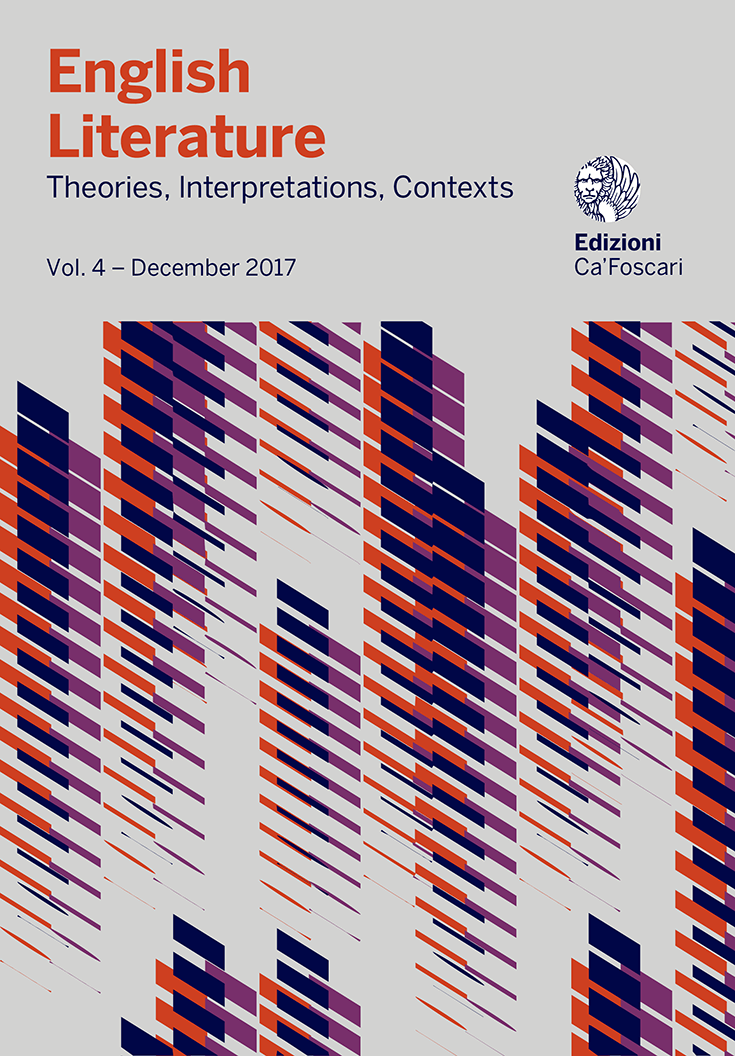- search 947 views
- file_download 256 download
Vol. 4 | Dicembre 2017
Passions, Emotions and Cognition in the Long Eighteenth-Century Literature in England
a cura di
Lingua: it
Pubblicato: 18 Dicembre 2017
abstract
The eighteenth century is commonly considered as the "age of reason".However, in the course of that century philosopher, writers, scientists, theologians, etc. showed an increasing interest in human passions and emotions that, as the newspaper The Spectator wrote, became "the light of the soul". "Without passion, continued The Spectator, you are but a blind man". David Hume even admitted that reason is the "slave of passions". Therefore, the eighteenth century decided to investigate the role of passions and emotions in various fields, from philosophy to medicine to the arts, and no longer, as happened in previous ages, by trying to harness them within a moral schematism but understanding how they affect and direct our knowledge and beliefs. The present issue of English Literature analyses the various ways in which English literature translated the eigheenth century's interest for passions and emotions, both as opposite and competing forms of knowledge (mind vs the senses, soul vs body, head vs heart, etc.) and as interactive capacities of man as a whole.
-
Keywords keyboard_arrow_down
Seventeenth-century theatre • Narrative • Scandal • Scepticism • Passions • Suspense • Epistemology • Understanding • Scriblerus Club • Arbuthnot • Emotion • Sermons • Eighteenth-century poetry • Curiosity • Virtual • Swift • Probability • Hypothetical thinking • Latitudinarianism • Tory • Robinson Crusoe • Acting • Representation of the soul • Eighteenth-century Rhetoric • The Examiner • Poetry • Actual • Genre • Propaganda • Imagination • Pope • Tillotson • Whig • Abergavenny • Cognition
Sommario
Table of Contents
- search 439 view
- file_download 87 download
- search 312 view
- file_download 35 download
- search 269 view
- file_download 19 download
- search 342 view
- file_download 53 download
- search 321 view
- file_download 26 download
- search 328 view
- file_download 38 download
- search 286 view
- file_download 15 download





